The notion of consuming protein before bedtime has been a subject of discussion within the fitness community. Recent research adds a layer of scientific insight to this practice, particularly focusing on the effects of whey and casein protein. In this article, we delve into a groundbreaking study that sheds light on the potential benefits of pre-sleep protein intake.
Table of Contents
- Role of Protein in Sleep Recovery
- New Study about Pre-sleep Protein Ingestion
- Let’s find out what happened ( Results )
- What can we conclude from this study as a whole about taking protein before bed?
Role of Protein in Sleep Recovery
Quality sleep is integral to overall well-being, especially when it comes to post-exercise recovery. Muscles, stressed during workouts, demand the right nutrients for optimal recovery, with protein and its amino acids playing a pivotal role. Along with just getting quality sleep, it’ll be nice to ensure that we obtain the proper nutrients during this important recovery phase as well. And the most essential nutrient for our muscles is indeed protein along with its amino acid constituents.
New Study about Pre-sleep Protein Ingestion
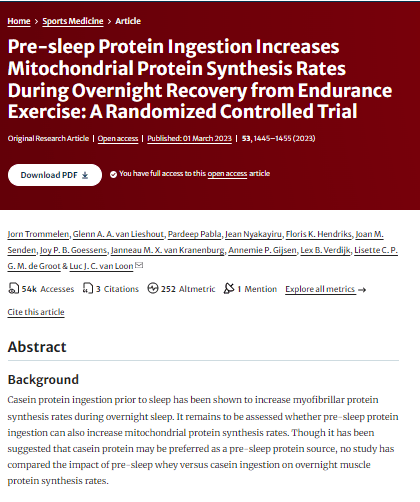
To uncover the mysteries of pre-sleep protein consumption, researchers recruited 36 healthy young men, dividing them into three groups. Each group consumed a shake containing either 45 grams of whey protein, 45 grams of casein protein, or a non-caloric placebo mix before bedtime. All subjects participated in 60 minutes of endurance cycling two hours before sleep. The study not only explored pre-sleep protein but specifically focused on whey and casein supplements. The belief that casein is superior for late-night consumption due to its slow-digesting nature is challenged by the study’s findings.
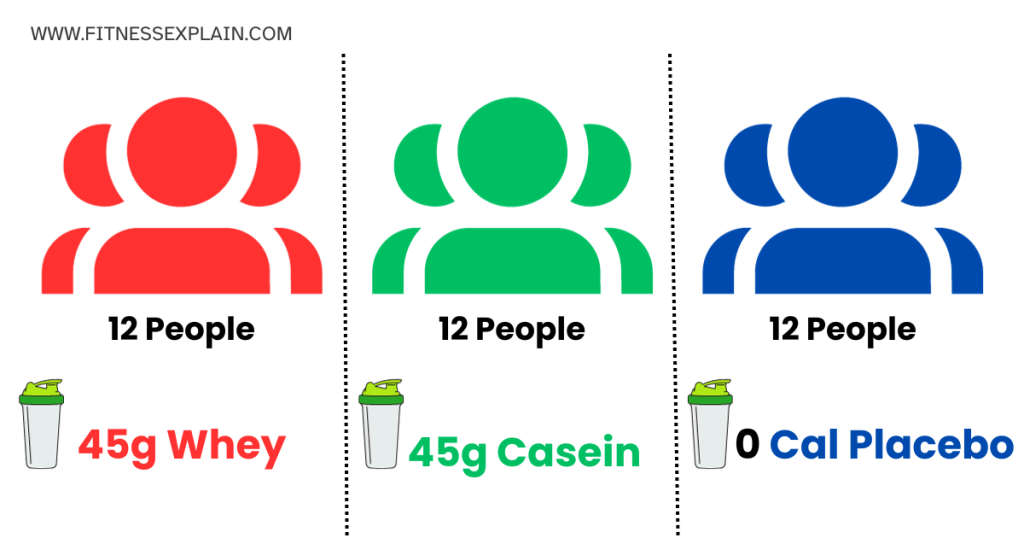
Analyzing amino acid concentrations revealed intriguing patterns. Whey protein caused a spike in leucine levels within the first 90 minutes, and surprisingly, these levels remained high and sustained throughout most of the night, comparable to those induced by casein.
And the second interesting thing is that the training protocol was endurance-based, which gave the researchers a new outcome to measure. Along with muscle protein synthesis, the researchers can now look into mitochondrial protein synthesis as well, which can give us data on endurance adaptations, something that hasn’t been considered before. Throughout the experimental day, all subjects were given a baseline protein intake of 1.2 grams per kilogram of bodyweight, which, broadly speaking, should be sufficient for exercise-related adaptations. Also, a big plus for this study is that both the training and sleep protocols were monitored in a lab setting. Throughout the course of the trial, blood samples were obtained numerous times, including six times while the patients were asleep. The ultimate objectives of the study were to assess the rates of muscle and mitochondrial protein synthesis as well as determine whether there were any differences between the effects of whey and casein.
Let’s find out what happened ( Results )
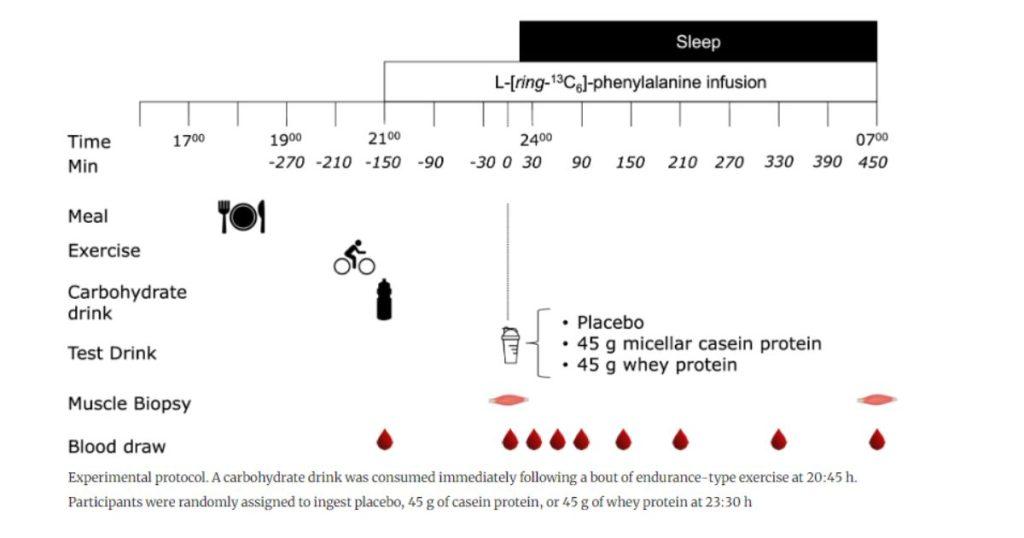
First, as expected whey protein consumption increased leucine concentration levels within the first 90 minutes after consumption, but then significantly dropped after. Casein, also as expected, sustained the modest but elevated concentration levels throughout the night. However, whey continued to maintain concentration levels that were comparable to or higher than casein for all but the final two hours of sleep. In other words, despite the big drop after the spike, whey still led to a high and sustained level of amino acid concentration throughout the night that rivaled that of casein and the remaining outcomes appeared to be influenced by this.
First, casein protein consumption led to an average 23% increase in mitochondrial protein synthesis over to the placebo. Whey protein consumption resulted in an average 37% rise.
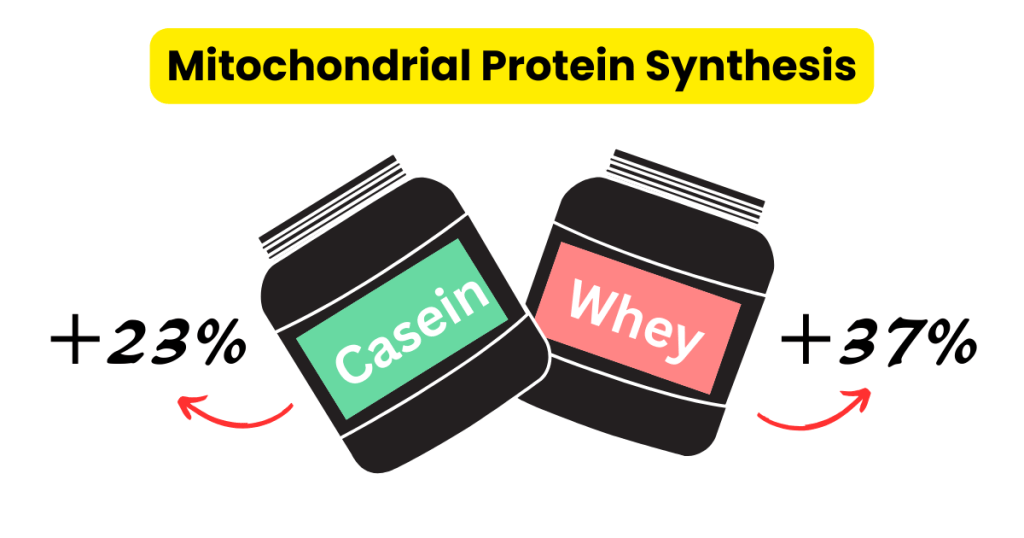
Finally, casein led to an average 18% increase in muscle protein synthesis over placebo and whey led to an average 35% increase.
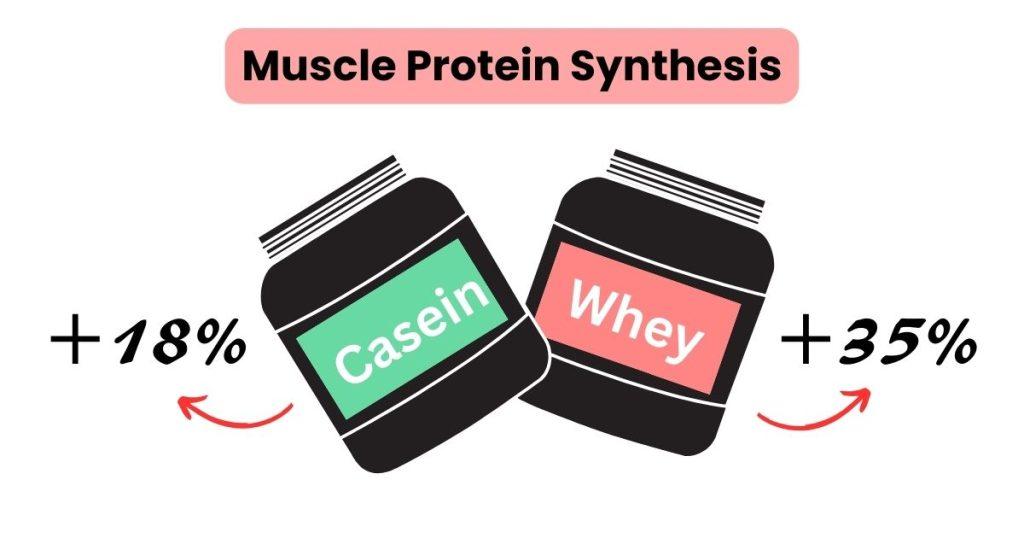
What can we conclude from this study as a whole about taking protein before bed?
Pre-sleep protein consumption may be a useful tactic for enhancing endurance adaptations, according to this study. This is a new discovery that might be helpful for endurance athletes, especially given that they often ingest less protein overall than the majority of other athletes do. This study, of course, supports earlier findings about good muscular increases. And at this time, there is a continuous enough stream of evidence that, in my opinion, at least makes the idea of consuming protein before bed worthy of discussion.
But what surprised me more than anything were the outcomes between whey and casein. It was long believed that casein’s superiority is its slow-digesting effects, which should be especially advantageous for overnight consumption. But now with this study, not only does it seem that casein’s concentration effects is not much better, but the actual mechanism of muscle growth, muscle protein synthesis, also fell well behind that of whey protein. Because of this, whey protein may very well become the finest protein supplement overall and the best milk-based protein supplement. Having said that, it should be noted that this is only one study. The whey and casein groups did consume more protein overall during the day after receiving the protein drinks than the placebo group, which is a minor factor to take into account.
I don’t believe it would much alter the findings, but it is still worth taking into account because the paper is particularly examining nighttime effects. I hope you got some knowledge from this new study. So don’t forget to share this article with your Pro protein friends.
Let me know what you think in the comments.
As always, thank you for reading and don’t forget to get your PROTEIN !
Resources
Main Study – https://link.springer.com/article/10.1007/s40279-023-01822-3
Other – https://pubmed.ncbi.nlm.nih.gov/28855419/
https://pubmed.ncbi.nlm.nih.gov/22330017/




